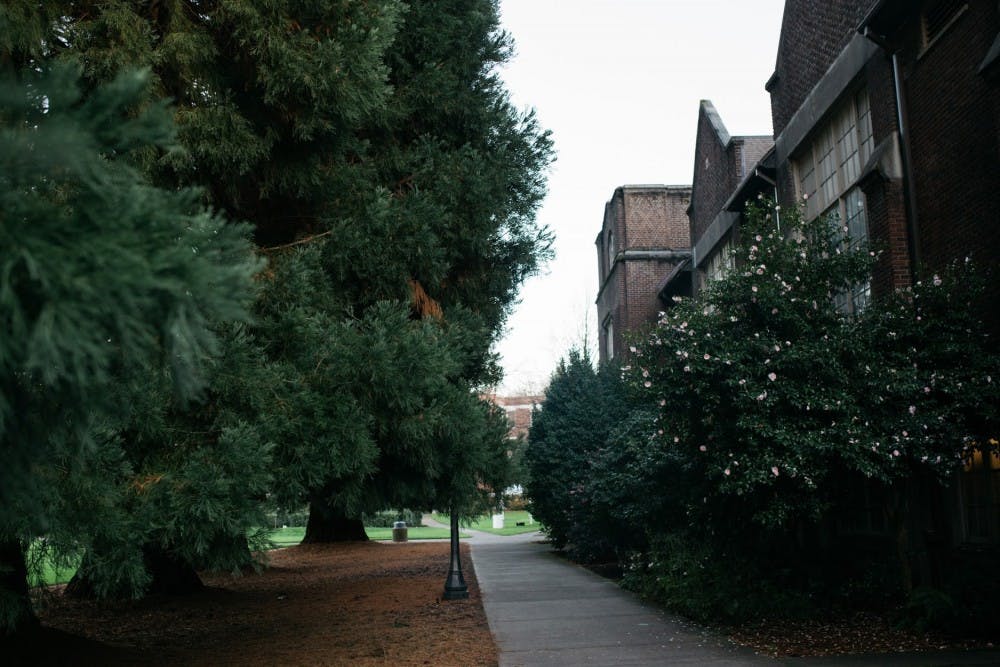The University will lose four sequoia trees in the East Quad in the coming weeks, University President Fr. Mark Poorman said in a campus-wide email sent out on Wednesday.
The fate of the seven sequoias that line the east wall of Howard Hall has been in question since last fall when the University was in talks of knocking down the dilapidated hall and replacing it with a new academic building. Of the seven, Poorman confirmed Wednesday that four trees would be torn down during construction.
UP spokesperson Beth Sorenson said the construction fence around Howard Hall went up last week, so work on the project is expected to start soon.
Poorman said that any alternative location for the new Dundon-Berchtold Hall would mean giving up an equal amount of green space or valuable parking space. The new academic building is a necessary improvement for a university that has grown 30 percent in the last decade, Poorman said.
Poorman noted that the University will gain 121 more trees this summer, 54 in the main parking lot and 67 on River Campus. The University was required to plant 30 of those trees due to a city zoning code stating that sites with more than five parking spots require landscaping.
The president also stated that as remediation for the lost trees, the University will fund the planting of large trees in Portsmouth and Columbia Parks in the University Park neighborhood. Poorman did not say whether the trees would be sequoias.
“I want to assure you that we did not make this decision lightly,” Poorman said. “I am confident we reached a thoughtful, informed, and inclusive decision... These discussions have also reinforced the importance of following the words of Pope Francis and being responsible stewards of the Earth and its resources.”
Poorman also pledged to join nearly 200 other universities and colleges in signing the “We’re Still In” statement on the Paris Climate Agreement, a set of guidelines to help countries around the world limit their greenhouse-gas emissions.
“The University of Portland is stepping forward to join their effort to ensure America meets its emissions pledge under the Paris Agreement,” Poorman said.
The “We’re Still In” pledge, coordinated by the former New York City
Sorenson said that Poorman’s message about the University’s decision to sign the pact has been in the works for a while.
Poorman included several ongoing projects the University is working on, including Physical Plant’s multi-year steam decentralization project. Poorman said that the University plans to remove two additional buildings from the centralized steam plan, reducing CO2 emissions by 283,990 pounds annually.
“I invite you to join me as we follow the words of Pope Francis and be stewards of this precious Earth that God has entrusted to us,” Poorman said.








